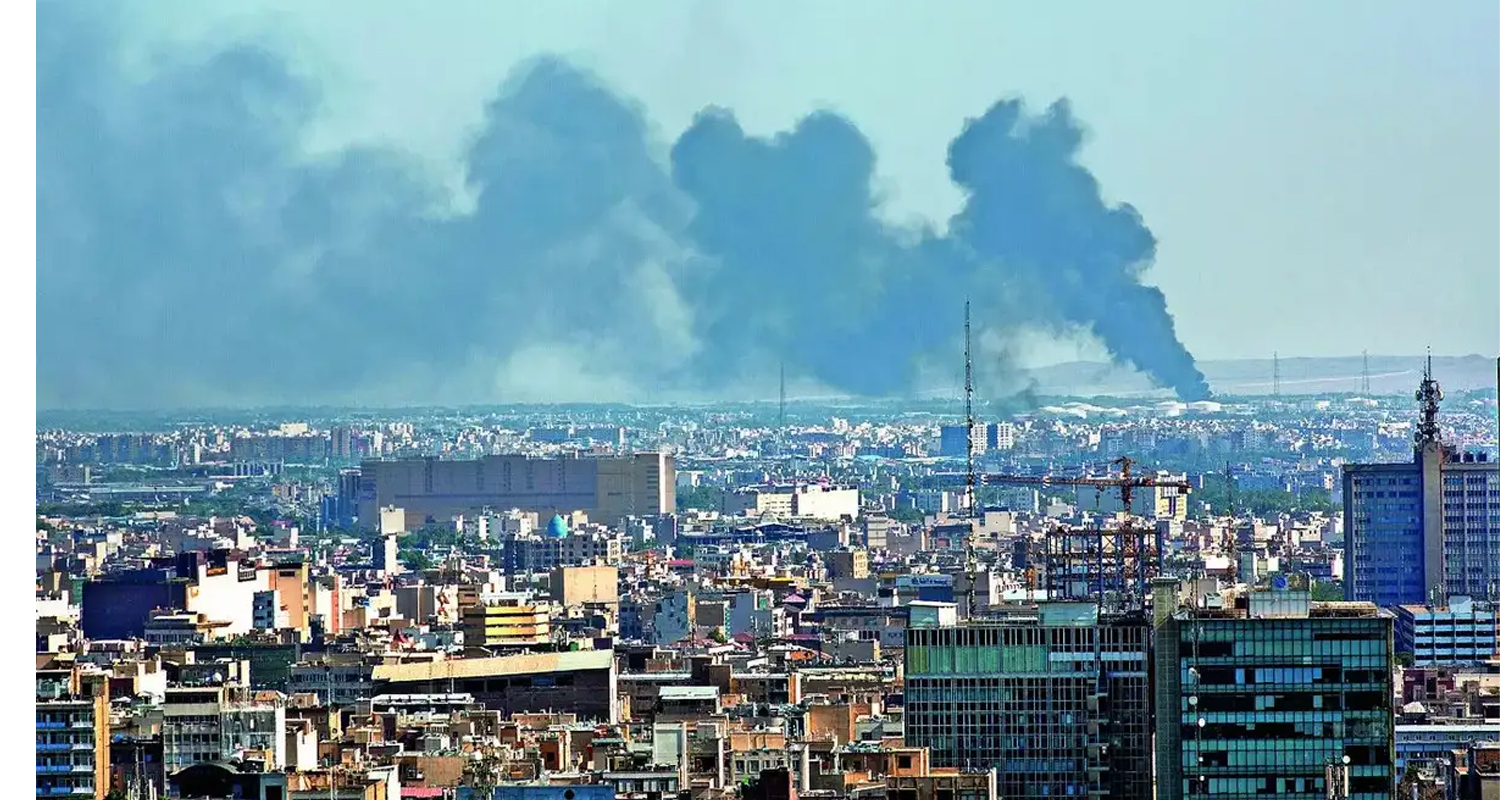
Iran said early Wednesday that it launched hypersonic missiles at Israel in the latest overnight escalation between the two rivals, just hours after former U.S. President Donald Trump called for Iran’s “unconditional surrender.”
While Trump insisted that the United States was not involved in Israel’s bombing campaign, he warned Iran that his patience was wearing thin as the conflict entered its sixth day.
Before dawn on Wednesday, Israeli warplanes targeted the Iranian capital, Tehran. Israel’s military later stated that the airstrikes hit weapons production facilities and a site used to manufacture centrifuges. Civilians in at least one district were warned to evacuate for their safety prior to the strikes.
In response, Iran’s Islamic Revolutionary Guard Corps (IRGC) claimed it had fired Fattah-1 hypersonic missiles at Tel Aviv, saying the missiles had “repeatedly shaken the shelters” in the city. “The 11th wave of the proud Operation Honest Promise 3 using Fattah-1 missiles was successfully carried out,” the IRGC announced on state TV.
Hypersonic missiles travel at more than five times the speed of sound and are capable of maneuvering mid-flight, making them extremely difficult to detect or intercept.
Iran also launched a swarm of drones toward Israel. The Israeli army confirmed it intercepted two of them over the Dead Sea area.
Global Concern Grows as Conflict Intensifies
With fears mounting that the conflict could spiral into a wider regional war, global powers have called for restraint. Egyptian Foreign Minister Badr Abdelatty spoke separately with his Iranian counterpart and U.S. envoy Steve Witkoff on Tuesday, urging a diplomatic resolution.
Trump fueled speculation about potential U.S. military involvement when he abruptly left the G7 summit in Canada. Back in Washington, he demanded Iran’s unconditional surrender on his Truth Social platform and claimed that the U.S. knew the whereabouts of Iran’s Supreme Leader. “He is an easy target, but we won’t take him out — at least not for now,” Trump wrote.
Trump also met with the National Security Council for an 80-minute meeting on the conflict but made no public statement afterward. Though he has promised to avoid further “forever wars” in the Middle East, Trump ordered the USS Nimitz aircraft carrier and several U.S. military aircraft to the region. U.S. officials stressed that no final decision had been made on direct intervention.
Evacuations and Fear
As the fighting rages, both countries have seen deadly civilian casualties. Israel claimed it killed senior Iranian commanders, including Ali Shadmani and his predecessor Gholam Ali Rashid.
Governments around the world are scrambling to evacuate their citizens. More than 700 foreigners living in Iran have fled to neighboring Azerbaijan and Armenia since the Israeli air campaign began. Those evacuated include citizens from Russia, Germany, China, the United States, and several Central Asian countries.
The U.S. announced it would close its embassy in Jerusalem until Friday due to the security situation. However, no evacuation plans for American citizens in the region have been announced.
In Tehran, fear has spread. Residents are forming long queues at bakeries and fuel stations. Some are fleeing the capital altogether, while others have taken shelter in underground car parks.
Iran’s state news agency Fars reported that a major cyberattack had crippled Sepah Bank, one of the country’s leading state-owned banks.
In Tel Aviv, with air raid sirens blaring frequently, residents have sought shelter wherever possible. “We’ve basically moved into this underground parking garage until things calm down,” said Mali Papirany, 30, speaking to AFP.
Nuclear Tensions and International Reactions
Israel has said the goal of its surprise air campaign is to prevent Iran from acquiring nuclear weapons — a claim Tehran denies. Iranian media reported multiple explosions in the city of Isfahan on Tuesday, home to key nuclear infrastructure.
The UN’s nuclear watchdog, the IAEA, confirmed that Iran’s underground uranium enrichment facility at Natanz had sustained “direct impacts.”
Israel has never confirmed or denied possessing nuclear weapons, but the Stockholm International Peace Research Institute estimates that it holds about 90 nuclear warheads.
The conflict has derailed nuclear talks between Tehran and Washington. Iran has declared it will not negotiate with the U.S. while under attack.
French President Emmanuel Macron emphasized that Trump has a key role in restarting diplomacy, warning that any attempt at regime change in Iran would lead to chaos. China accused Trump of “pouring oil on the fire,” while Turkish President Recep Tayyip Erdoğan called Israeli Prime Minister Benjamin Netanyahu “the greatest threat to regional security.”
Since Friday, Israel has reported at least 24 deaths and hundreds of injuries. Iran claimed on Sunday that at least 224 people — including military leaders, nuclear scientists, and civilians — were killed in Israeli strikes. No updated death toll has been released since.
FACEBOOK COMMENTS